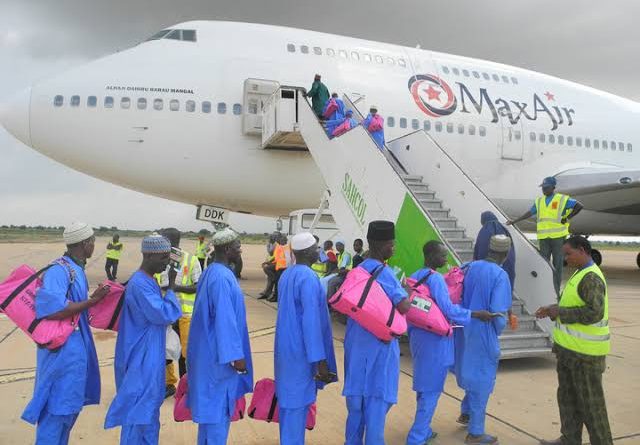The Non-Negotiable Necessity: Why Early payments of Hajj Fares is Crucial for Nigerian Pilgrims
The Non-Negotiable Necessity: Why Early payments of Hajj Fares is Crucial for Nigerian Pilgrims
By Mariam Zubair Abubakar
The annual Hajj pilgrimage is the spiritual culmination for millions of Muslims worldwide, and for Nigerians, the journey is often fraught with logistical challenges. Year after year, the National Hajj Commission of Nigeria (NAHCON) and State Muslim Pilgrims’ Welfare Boards (SMPWBs) emphasize a critical requirement for an improved Hajj experience: early payment of Hajj fares by intending pilgrims. This call is not merely an administrative preference; it is a fundamental necessity that directly determines the quality, comfort, and seamlessness of services delivered to Nigerian pilgrims in the Kingdom of Saudi Arabia.
The operational calendar set by the Saudi Ministry of Hajj and Umrah for the 2026 Hajj is rigid and non-negotiable. The modern administration of Hajj is a high-stakes, time-sensitive operation, moving away from what was hitherto obtained as the last-minute arrangements. For Nigerian pilgrims to receive quality services, their funds must be remitted early, for the following explicit reasons:
1. Optimal Contract Negotiation and Location Advantage
The Saudi operational timeline dictates strict deadlines for contracting essential services, such as:
Mashā’ir Services (Mina, Arafat, and Muzdalifah): The allocation and payment for tents and services in the holy sites of Mina, Arafat, and Muzdalifah are contracted months in advance. Late funds threaten Nigeria’s ability to secure comfortable, well-located, and upgraded tent spaces, which are essential for a smooth Manasik (core Hajj rites).
READ ALSO: NAHCON Inaugurates Committee to Screen 2026 Hajj Tour Operators
Accommodation in Makkah and Madinah: Early remittance allows NAHCON and the States Pilgrims Welfare Boards to secure hotels closer to the Haram both in Makkah and Madinah. Delayed payment often forces the commission to settle for facilities further away, leading to higher transport costs and greater physical strain on pilgrims, particularly the elderly.
2. Securing Preferred Air Travel Slots and Lower Cost
Airline slots for Hajj are competitively sought after globally. Late payments don’t give adequate room for preparation making it harder for Nigerian designated carriers to find available landing slots due to non-availability of the numbers of pilgrims traveling. in order to Secure better departure and arrival schedules, minimize long waiting times at Nigerian and Saudi airports Nigerian pilgrims need to make payment in Ernest so as to avoid all the mentioned issues.
3. Facilitating Timely Visa and Data Processing
The completion of pilgrim registration and the submission of accurate data through the Saudi Nusuk platform are tied to a strict deadline. Funds must be settled before pilgrims’ details can be finalized and uploaded. Late remittance directly translates to a delay in the crucial data submission, which can lead to:
Visa Delays: Threatening the pilgrim’s ability to travel on schedule, a scenario that has seen thousands of Nigerians miss the pilgrimage in past years.
Logistical Disruptions: Preventing the timely grouping of pilgrims, which is essential for accommodation, feeding, and transportation management.
4. Enhancing Welfare and Contingency Planning
Prompt receipt of funds gives NAHCON and SMPWBs the necessary financial leverage for:
Better Service Provision: Ensuring contracts for feeding (including the provision of local delicacies), transportation, and medical services are robustly funded and managed.
Contingency Management: Providing a financial cushion to address unforeseen challenges, currency fluctuations, or service failures without resorting to emergency financial measures that often burden the pilgrims or the government.
The decision to embark on Hajj is a spiritual one that requires financial preparation among others. The call for early remittance is a practical step that converts spiritual intention into a dignified and well-managed reality.
Intending Nigerian pilgrims must view the prompt payment of Hajj fares not as a mere transaction, but as a direct investment in their own comfort and well-being during the sacred journey. By heeding NAHCON’s repeated advice and utilizing mechanisms like the Hajj Savings Scheme to make early deposits, Nigerian Muslims can collectively ensure a significant and lasting improvement in Hajj service delivery, making the sacred pilgrimage what it is intended to be: a profound and unburdened spiritual experience.
Mariam Zubair Abubakar writes from Public Affairs unit of NAHCON.




